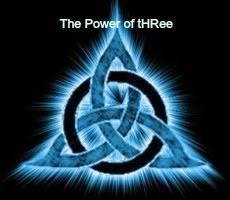I will try to put that right later. There looks to be some good stuff out there.
Right now I'm in another conference session on using HR Business Partners to drive culture change. Helen Thevenot from Thomson Reuters spoke about how this had worked in her organisation. The key question she started with was "what more can I do to results?"
Now this, to me, seems like an obvious question to ask and I'm surprised more HRBPs aren't asking it of themselves or those they work with.
But Helen explained this is related to their "mood elevator", and asking HRBPs how they have helped other people achieve THEIR goals and measuring them on both of these as well as their use of technology.
So that's something to consider. How many HR staff appraisals focus on the achievement of personal goals, as opposed to the achievement of other people's goals? And how many HR staff appraisals look at the use of technology by those HR staff and the people they work with?
I guess the key thing to take away from Helen's talk was to challenge HRBPs to think differently, and to put other people's needs and goals ahead of their own.
But I recently did some pay benchmarking of HRBP roles in the housing sector and the median salary was below £30k (but not much). I wonder if those roles are true BP roles and whether there's a mindset and skill shift required to allow those individuals, or others, to act as true BPs, and be remunerated as such.
The other speaker in this session, Steve Foster, focused on what drives culture, is it created by processes or does it create processes? He gave examples from TfL about how levels of bureaucracy can stifle culture change, and sometimes it's hard to change the culture without rethinking the processes that allow the organisation to work. He spoke about the need to have a change framework - any will do - and stick to it.
That's a good point because I've seen lots of change programmes fail because there isn't an underlying change framework or perhaps several competing ones, and because whilst everyone signs up to the new vision and wants to change, the organisational history, legacies, artefacts and processes don't allow the true culture change to happen.
There's no point wanting to be fast acting, fast thinking and flexible if any change needs multiple layers of signoff and a protracted negotiation and consultation phase. The two don't mix.
Foster asked three key questions to help you introduce successful change. Firstly who is key to success and able to influence? Secondly where is being a change agent on your priority list? And thirdly how can you develop teams and not just individuals? Focusing on these can embed change.
I'd agree with this, it makes a lot of sense and backs up my own experiences of delivering large scale change, something I'll explore further in a future blog.
He finished by asking people involved in change to think emotionally and not rationally. Now that's a new concept and something that lots of senior leaders don't think through fully sometimes. I'm a highly emotional person, my MBTI score and TMSDI profile say so. I make decisions based on gut feel and look for evidence to back it up later, rather than the other way around. I'm not suggesting I've got it right, but I think that considering emotional factors is a crucial thing in change programmes and it's not just about having a rational, logical reason for change. Sometimes people want to react and think emotionally.
And now it's lunchtime. It's been a good morning, focusing on change and mental health. Let's see what the afternoon brings.
I need to stock up on free goodies from the exhibition. I didn't bring this big bag to take it home empty.
Till next time.
Gary.

No comments:
Post a Comment